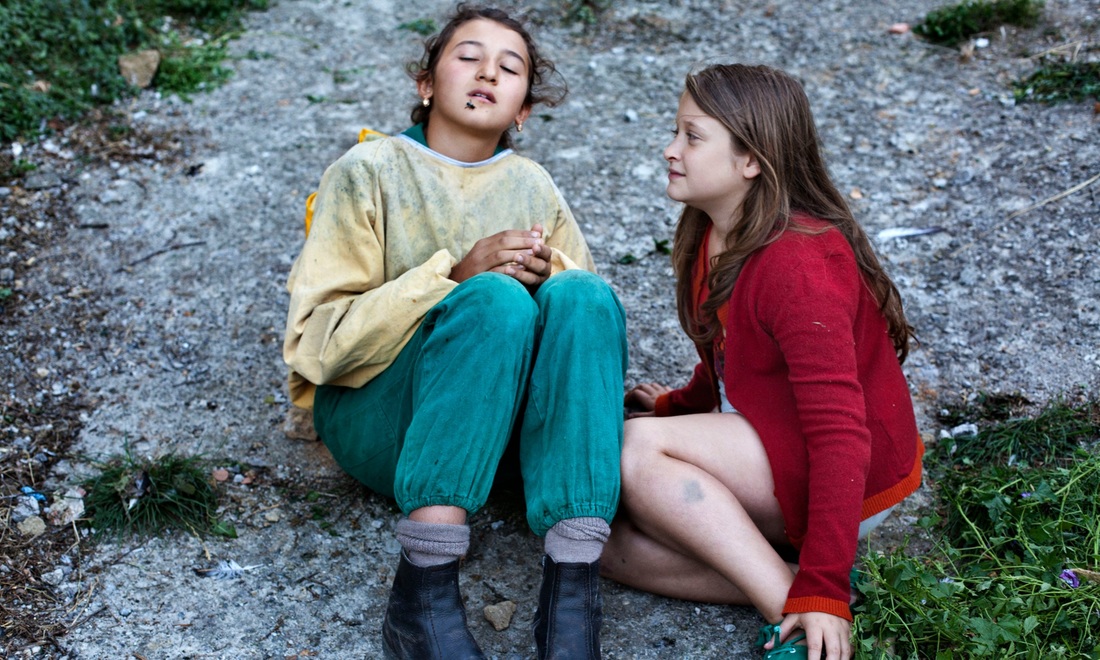Music is used sparingly in the movie—only during scenes in which music is actually playing in the characters’ world, or when these rural farmers are dealing with the modern world. A lack of music may be unappealing for some, but in The Wonders, it only made it that much more noticeable and meaningful when music was playing.
White noise is used extensively, but it would be wrong to say that the movie is at all silent. The bees, the wind, and other diagetic sounds create an auditory combination that’s a soundtrack in its own right. The buzzing of bees is so frequent and loud that it creates a sense of anxiety and stays with the viewer after the film is over. It’s also interesting to notice how calm the characters are around the bees, and how mundane these potentially dangerous scenes seem to them. It’s a testament to the acting and the directing that scenes so boring to the characters can generate such discomfort and suspense in the audience.
The plot is the trickiest concept in this film. In other words, there’s rather little of it. The movie doesn’t so much have a main conflict as it has several important conflicts that culminate in stressful, uncomfortable emotional states for the characters. Therefore, this lack of a main idea can’t really be a weakness in and of itself because it accomplishes exactly what Rohrwacher’s intention seems to have been: to create a portrait of a specific family in a certain time and place. This quality does, however, make the movie feel long and directionless towards the end.
The Wonders is stunning to watch and to listen to, and worth it to any movie-goer who enjoys realism, or just a well-made European film. Stay away if you’re in the mood for a tightly wound plot and satisfying resolution, or if you want something fast-paced. This is more of a rainy day movie.
Grade: B-

 RSS Feed
RSS Feed
